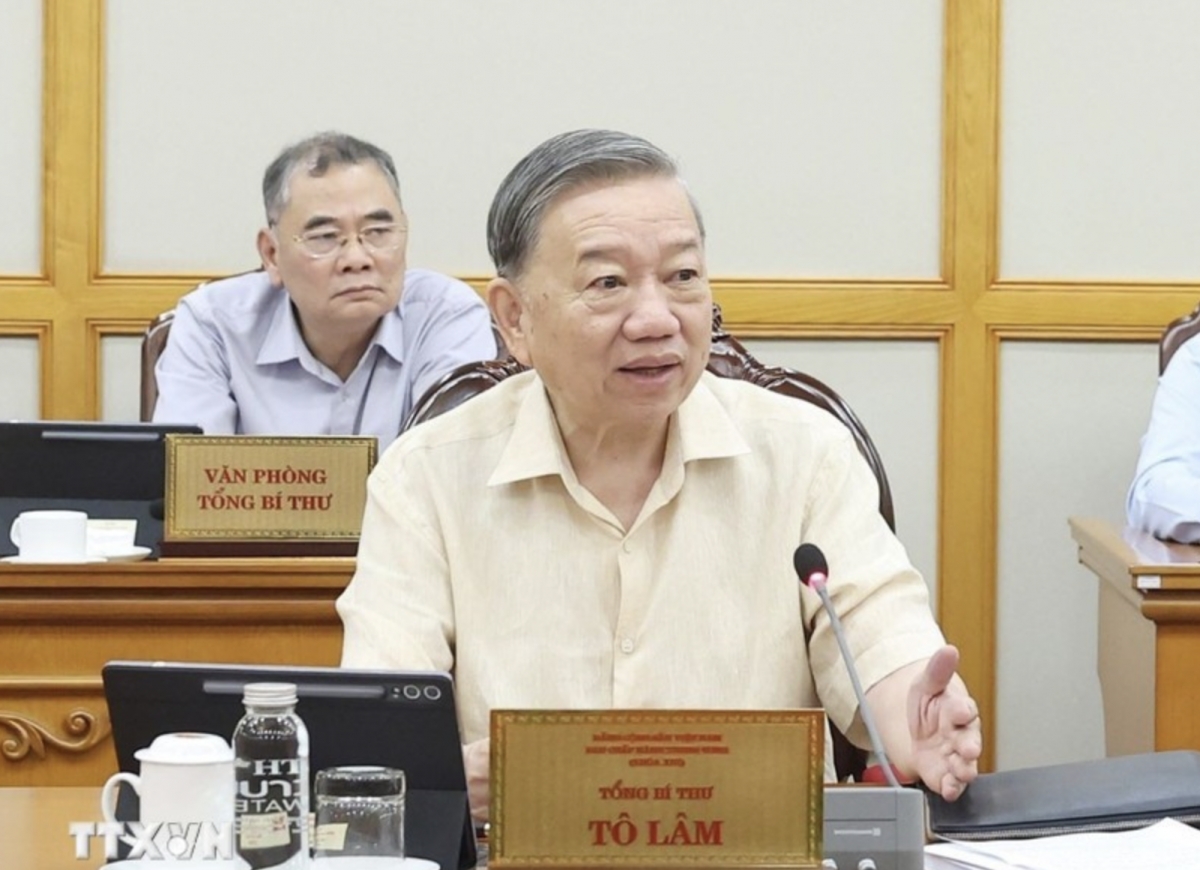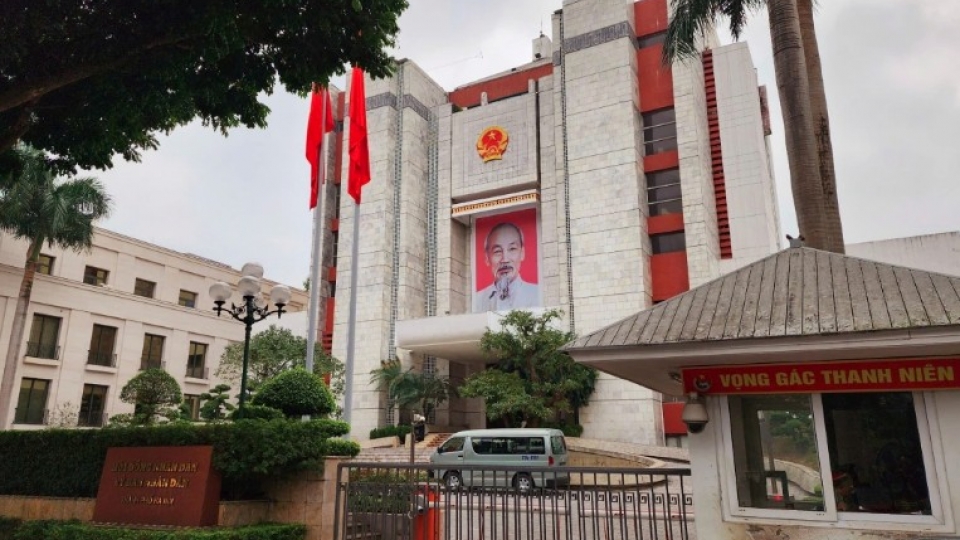Enhanced leadership needed to ensure operations of two-tier local administrations
Party General Secretary To Lam has directed provincial-level Party Committees to strengthen leadership so that all operations of both provincial and commune-level administrations run smoothly and efficiently, with the overarching goal of better serving people and enterprises.

Chairing a meeting of the Party Central Committee’s Politburo and Secretariat on July 4 to discuss the implementation of resolutions and conclusions regarding the reorganisation of administrative units, the Party chief urged the Party Committees of provinces and centrally-run cities to promptly review staffing arrangements across provincial and commune-level offices.
Provincial authorities must promptly allocate additional personnel to communes, wards and special areas which lack professional staff to ensure effective operations, he said.
General Secretary Lam emphasised the need to monitor the implementation closely and promptly address any difficulties faced by commune-level units operating under the new system.
The leader stressed the importance of political and ideological education, implementation of support policies for current and retired public officials, and robust communication efforts to inform the public about new administrative procedures and locations. This will help build and maintain public consensus and support for the two-tier local administration model, he explained.
He suggested provincial and municipal Party Committees coordinate with the Ho Chi Minh Communist Youth Union and relevant agencies to deploy university students and youth volunteers with basic IT skills to assist local officials and residents, particularly in remote and disadvantaged areas, in operating administrative systems, providing online public services, and handling procedures during the early stages of the two-tier model.
The Party Committees were tasked to carefully prepare for Party congresses at all levels ahead of the 14th National Party Congress, in conjunction with upcoming elections of deputies to the National Assembly and People's Councils at all levels.
General Secretary Lam asked the Party Committees of provinces and cities to promptly report data to the Politburo on commune-level non-specialised personnel who resigned due to restructuring, and to ensure accurate policy implementation that retains capable individuals. Relevant wage and allowance policies should be reviewed and adjusted accordingly, he added.
He also requested the Party Committee of the Vietnam Fatherland Front and mass organisations to restructure internal units for improved grassroots engagement, while streamlining civil society organisations in line with the two-tier model. They should also track the performance of newly-reorganised structures and propose timely, practical solutions for arising challenges.
A report delivered at the meeting highlighted that trial operations of the new two-tier local administration model from June 20–30 showed good results, with local authorities actively implementing central and local directions. Civil servants quickly adapted to new responsibilities and electronic systems.
The official launch on July 1 marked a major step in public administration reforms, aiming to streamline operations and improve governance. Measures like staff training, transport support, and experienced mentoring ensured a smooth transition.
Provinces and cities reported stable, effective operations, especially in public service centres, with improved staff morale and accountability. The 9th session of the 15th National Assembly was seen as a historic legislative milestone, launching vital institutional reforms.
Despite challenges, authorities acted decisively, with civil servants showing competence, adaptability, and commitment. Public opinion sees the reform as a shift in administrative mindset and professionalism, not just structural change.
At the meeting, participants also discussed the draft report on results of implementing Resolution No. 18-NQ/TW issued on October 25, 2017 by the 12th Party Central Committee regarding the streamlining of the political system’s organisational apparatus, covering the period from November 2024 to July 2025.
He assigned the Party Central Committee’s Organisation Commission to incorporate feedback from the Politburo and the Secretariat to finalise the report.




